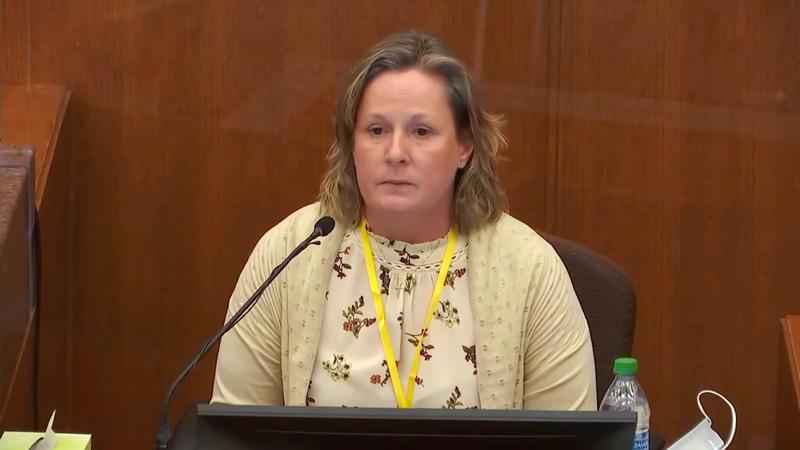Legal analyst calls Potter’s testimony ‘critical’ as case heads to closing arguments
[anvplayer video=”5078524″ station=”998122″]
Kimberly Potter testified for nearly two hours on Friday as the defense brought its case to a close. The former Brooklyn Center police officer is charged with first and second-degree manslaughter in the death of Daunte Wright.
Potter shot and killed Wright during a traffic stop in April.
“The plan was for Officer Luckey to get the driver into custody for the warrant and we’d further investigate the female, who she was and if she was the petitioner or the subject of her restraining order,” Potter told the jury. “It just went chaotic.”
Only describing him as “the driver," Potter described a struggle as Wright tried to get back into the car while being handcuffed. She said she saw then-Sgt. Mychal Johnson’s hand and face.
“He had a look of fear on his face, it’s nothing I’d seen before,” she said. “I remember yelling ‘Taser, Taser, Taser’ and nothing happened and he told me I shot him.”

Former Brooklyn Center Police Officer Kimberly Potter testifies in court on Friday, Dec. 17, 2021.[Court TV, via AP, Pool]
Potter told the jury it was the first time she had fired her weapon on duty.
During cross-examination, Potter confirmed she didn’t provide aid to Wright after shooting him, or check on the other car involved in the subsequent crash, or alert other officers about what had transpired.
Prosecutor Erin Eldridge said, “You were focused on what you had done because you had just killed somebody” and Potter replied, “I’m sorry it happened. I’m so sorry.”
Eldridge then asked, “You didn’t plan to use deadly force that day did you?”
Potter said no and agreed she didn’t want to use deadly force when Eldridge continued with, “Because you knew that deadly force was unreasonable and unwarranted in the circumstance?” Potter said “I didn’t want to hurt anybody.”
Prosecutors will likely use those words during its closing arguments, according to local defense attorney Jack Rice. He is unaffiliated with this case.
“Right when I heard that I thought to myself, was that an admission?” said Rice. “Like so much of this evidence? It cuts both directions.”
He said the defense will likely focus on Wright’s actions and Potter’s remorse in its closing argument.
"I think what she said, what she looked like, how it felt, is going to be even more critical,” said Rice. “There’s one piece that’s also critical for the defense here, which is when Kim Potter said I saw Mike Johnson’s face and I saw fear. That was critical because she had to be able to see his face to see him inside the car in order to justify the use of deadly force and that’s something that the defense must use to avoid that first degree charge.”
He said explained that while remorse is not an element of a charge, her apology will factor into the jury’s perception of her credibility.
“The reason the defense put her on the stand is because in many ways this is a very visceral case,” said Rice. “You have a dead young man in the street, it’s undeniable, the video was undeniably brutal. You have to have something to counterbalance it, something that can address it. And somebody, especially Kim Potter, to be able to say, through tears, ‘I’m sorry.’”
Potter’s testimony was the last words the jury heard before it adjourned for the weekend.
“There’s something called primacy and recency,” said Rice. “The first thing we say people will remember, the last thing we say, people will remember that. The reason you put Kim Potter on last is you want that jury to feel her pain, her anguish, her loss.
"You want them to viscerally take that home over the weekend and say, how do you convict somebody like this? […] If you consider how [the prosecution] tried their case, they book-ended the parents. The prosecution started with the mother. The prosecution ended with the father.
"And the reason is because you could feel their anguish, their pain that moves people that connects with people that drives people to say, ‘this must not simply be allowed to be okay.’”